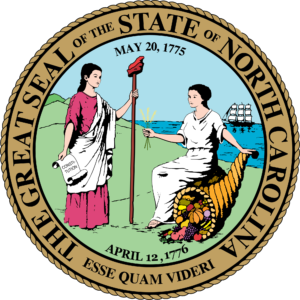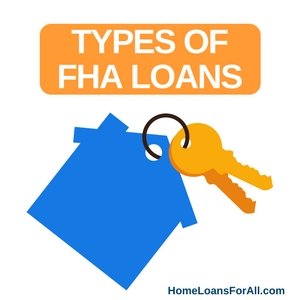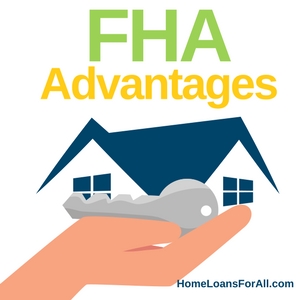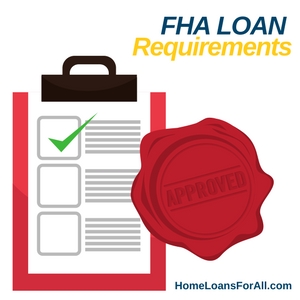Owning a home is often seen as the ultimate goal of the American dream. And it’s more than just a symbolic gesture – purchasing a home is a long-term investment, an asset whose value can appreciate over time.  Plus, you have the security of owning your own property and the comfort of a large living space.
Plus, you have the security of owning your own property and the comfort of a large living space.
But as we all know, owning a home is also not something to be done on a whim.
It’s important to select the mortgage program that best fits your needs. Many North Carolinans are looking at Federal Housing Administration Loans, also known as FHA loans.
Get Pre Qualified for An FHA Loan in North Carolina Today – Click Here.
The FHA is the largest mortgage insurer in the world and roughly 30 percent of all home loans in Carolina are FHA mortgages.
We’ve compiled a list of some of the most common questions about FHA loans and answered them – and if you’re from North Carolina yourself, maybe you’ll find that this type of mortgage is right for you.
FHA Loans in North Carolina: What are the benefits?
An FHA loan is a type of housing loan that is issued by a private bank or lender and insured by the United States Federal Housing Administration.
In short, the FHA is promising that it will reimburse the moneylender if you can’t pay back your loan, a promise that is backed by the taxing power of the US treasury.
Because they are guaranteed to make their money back, lenders who are partnered with the FHA are willing to make more substantial loans than they would otherwise – even occasionally granting mortgages in cases when they’d normally reject the application outright.
For this reason, FHA loans mostly appeal to first-time home buyers, applicants with credit scores between 580 and 620, and buyers who want to make a low down-payment.
What are the different types of FHA loans in North Carolina?
 Homeowners in North Carolina – as in other parts of the world – should educate themselves on the different types of available loans before choosing one that’s right for them.
Homeowners in North Carolina – as in other parts of the world – should educate themselves on the different types of available loans before choosing one that’s right for them.
When most people talk about FHA mortgages, they’re talking about fixed-rate FHA loans.
However, there are actually alternatives to this option, including:
The 5-year adjustable rate mortgage starts at an interest rate that is 1 percent lower than a fixed rate FHA loan (in most cases), and that rate does not change for five years.
This option gives the homeowners a chance to settle in before beginning to make larger payments.
As the name implies, this option has a fixed interest rate that will not change for the duration of the mortgage – apart from slight deviations in insurance or property taxes, naturally.
Your payment will be the same for every month of the payback period, which is most commonly 30 years.
This loan is best for buyers who want a home but haven’t been able to save up money for the purchase, like college graduates or newlyweds.
This is often a popular choice with low and moderate income applicants.
What advantages do homeowners have with an FHA loan in North Carolina?
 As mentioned in the introduction, FHA loans are among the most popular in the country and certainly in North Carolina. They come with a number of obvious advantages:
As mentioned in the introduction, FHA loans are among the most popular in the country and certainly in North Carolina. They come with a number of obvious advantages:
Firstly, FHA loans have a much smaller down payment. Conventional mortgages usually require a down payment of twenty percent on a home. An FHA mortgage only requires a downpayment of 3.5 percent for most families.
In North Carolina, they may even require no down payment at all!
This is why these types of loans are often preferred by first-time homeowners, low income families, and younger prospective buyers – groups that have steady work, but which may not be able to afford a single large payment up front.
Secondly, moneylenders and banks are much more flexible on the requirements for loan approval because the FHA loan protects them from risk and is backed by the United States government.
An FHA loan in North Carolina requires no minimum income, a credit score of only 600 or more, and a much higher debt-to-income ratio than traditional mortgages (usually your payment needs to be no more than 31% of your income, but in some cases an applicant can get approved with a D-I ratio as high as 50%.)
In many cases, applicants that would normally be turned down outright will get accepted for an FHA loan.
In short, an FHA loan in North Carolina is much less expensive upfront and much more accessible than most other forms of mortgages. That said, be sure to pay attention to this next section:
What are the disadvantages for an FHA loan?
This section is why we’ve emphasized throughout this article how important it is to find the mortgage that works best for you.
FHA loans offer many attractive advantages, but they come with disadvantages as well.
Firstly, buyers are required to pay an upfront FHA funding fee which usually costs about 1.7 percent of the total mortgage.
This fee is how the Federal Housing Administration protects its investment – it’s a premium for the insurance the government provides the moneylender.
Secondly, there’s the issue of Private Mortgage Insurance, or PMI.
Conventional mortgages usually let homeowners cancel their PMI after they have accrued a certain amount of equity (usually around 20 percent of the total value of the property.)
With an FHA loan, you can’t cancel your insurance until you’ve paid off the home in its entirety.
Thirdly, interest rates are often slightly higher for an FHA loan in North Carolina than they are on a traditional loan. This is how the banks make back their money from the small down payment up front.
Finally, FHA loans may not provide enough funding if you need a larger loan. In North Carolina, the FHA maximum limit for 2018 is $300,150.
How important is credit when applying for an FHA loan in North Carolina?
 One of the major benefits of an FHA mortgage is the lower credit requirements, but let’s face it – credit matters any time you apply for any kind of loan.
One of the major benefits of an FHA mortgage is the lower credit requirements, but let’s face it – credit matters any time you apply for any kind of loan.
In North Carolina, most FHA Underwriters require a middle credit score of 620, and they will want to see three open trade lines on your credit report that have been there for a minimum of 12 months.
However, this is not a hard and fast rule. It can be beneficial to “shop around” for lenders with lower credit requirements – in North Carolina, sometimes you can find as low as 580.
Be aware: lower credit scores usually mean a higher down payment. Still lower than a conventional loan, but sometimes as high as 10 percent.
In addition, some lenders in the state of North Carolina will now consider “additional forms of credit” in place of the typical FICO credit score. These can include long-standing accounts with vendors like your utility companies or phone service.
What type of properties qualify for an FHA home loan?
Not every property is available under FHA loan limits in North Carolina. Chapter 3 of the Department of Housing and Urban Development’s Handbook 4150.2 describes in 21 pages the exact requirements appraisers use to determine if a property is eligible.
Mostly, these are safety standards – the government wants to make sure that the home is safe and secure (which is something you want to be sure of, too.)
They will be looking for foundation issues, cracks, loose handrails, or other structural concerns.
Homes are often disqualified if they have holes or leaks in the roof, low water pressure or temperature, insufficient space, or a faulty HVAC system.
There are additional guidelines for condominium units which can be found at HUD.gov.
Beyond these guidelines, the major qualifier for an FHA loan is the listing price, as laid out in the previous section.
What are the requirements for an FHA loan in North Carolina?
Typical requirements for an FHA loan in North Carolina in 2018 are as follows:

Lenders can set their own standards for an FHA mortgage in North Carolina, but these are the minimum requirements set by the state and federal government.
Most lenders will require a credit score closer to 600 and a debt-to-income ratio around 30-40 percent. However, it’s always worthwhile to “shop around” for a lender that can meet your needs.
How do you receive an FHA loan in North Carolina?
FHA loans are only insured by the government – they don’t originate any of the mortgages.
Instead, the Federal Housing Administration will refer you to a list of lenders that they work with on these types or loans.
Ask your local banks and mortgage companies – they will most likely have some kind of FHA loan program in place.
Once you find a partnered lender with terms that you like, you will have to apply just as you do for any other loan.
A representative will check your credit score, income, debt, and more to make sure you fit their requirements and the federal requirements listed above.
What are the FHA loan rates for North Carolina?
Not every lender will offer the same rates for an FHA loan in North Carolina. What’s more, the real estate market is in a constant state of flux and loan rates often change on a daily basis based on economic indicators.
Shop around and do some research before applying to a specific lender to make sure they offer the lowest rates in your area – you don’t want your payments to become more than you can handle a few years down the road.
Do you have to be a first-time home buyer for an FHA loan in North Carolina?
This is a popular myth, but there’s no truth to it. Though FHA loans often appeal more to first-time home buyers than to other customers, anyone can apply as long as they meet the minimum requirements established by the federal government.
What is the maximum income limit for FHA loans?
There is no maximum income limit for FHA loan applicants in the state of North Carolina.
Again, however, FHA loans are usually a better investment for those with a lower income because the main benefit of these loans is the lower down payment.
If you can afford a larger payment up front a conventional mortgage will give you lower interest rates and you might pay less overall.











